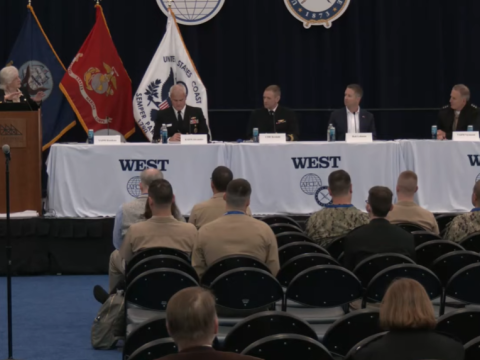Coast Guard Expands Intelligence Activities
The U.S. Coast Guard is adopting new technologies and capabilities that it hopes will provide it with needed intelligence while also being complementary to that of other intelligence organizations. The service is uniquely positioned to act both locally and globally to support U.S. intelligence needs, and it aims to be able to interoperate with foreign partners.
Rear Adm. Christopher J. Tomney, USCG, assistant commandant for Coast Guard intelligence and criminal investigations, explained to the audience at the AFCEA/INSA Intelligence and National Security Summit 2014, held September 18-19 in Washington, D.C., that the Coast Guard can provide a unique maritime niche to U.S. intelligence needs. “We’re in multiple communities, we are part of the homeland security intelligence enterprise, we bring that to the Defense Department,” he stated.
The admiral declared that the Coast Guard tries not to compete with its Defense Department colleagues. It is striving to ensure alignment with defense tactics, technologies and procedures in intelligence amid a joint force. The Coast Guard also should leverage its ability to interact with other organizations ranging from international partners to tribal organizations.
The Coast Guard just commissioned a cyber command, Adm. Tomney pointed out, and he called for treating the cyber domain in the same way as the maritime domain. The service is increasing its human intelligence (HUMINT) collection assets. With the workforce consuming the bulk of the intelligence budget, the service needs to leverage knowledge management technology.
The admiral cited a need to exploit the power of social media to increase understanding of emerging events. He pointed out that events such as the rise of the Islamic State in the Levant (ISIL) and the Arab Spring had indications in social media.


Comments